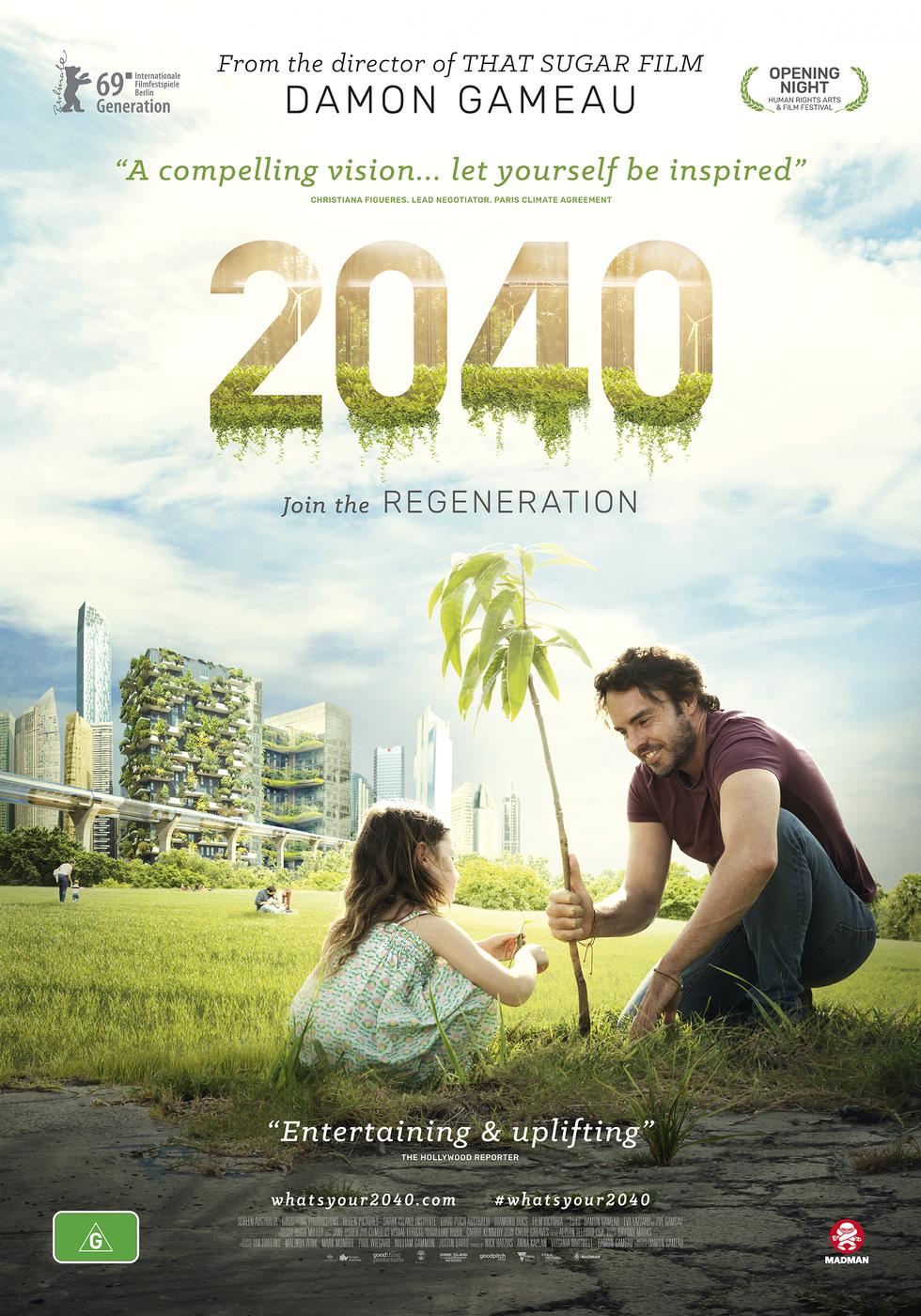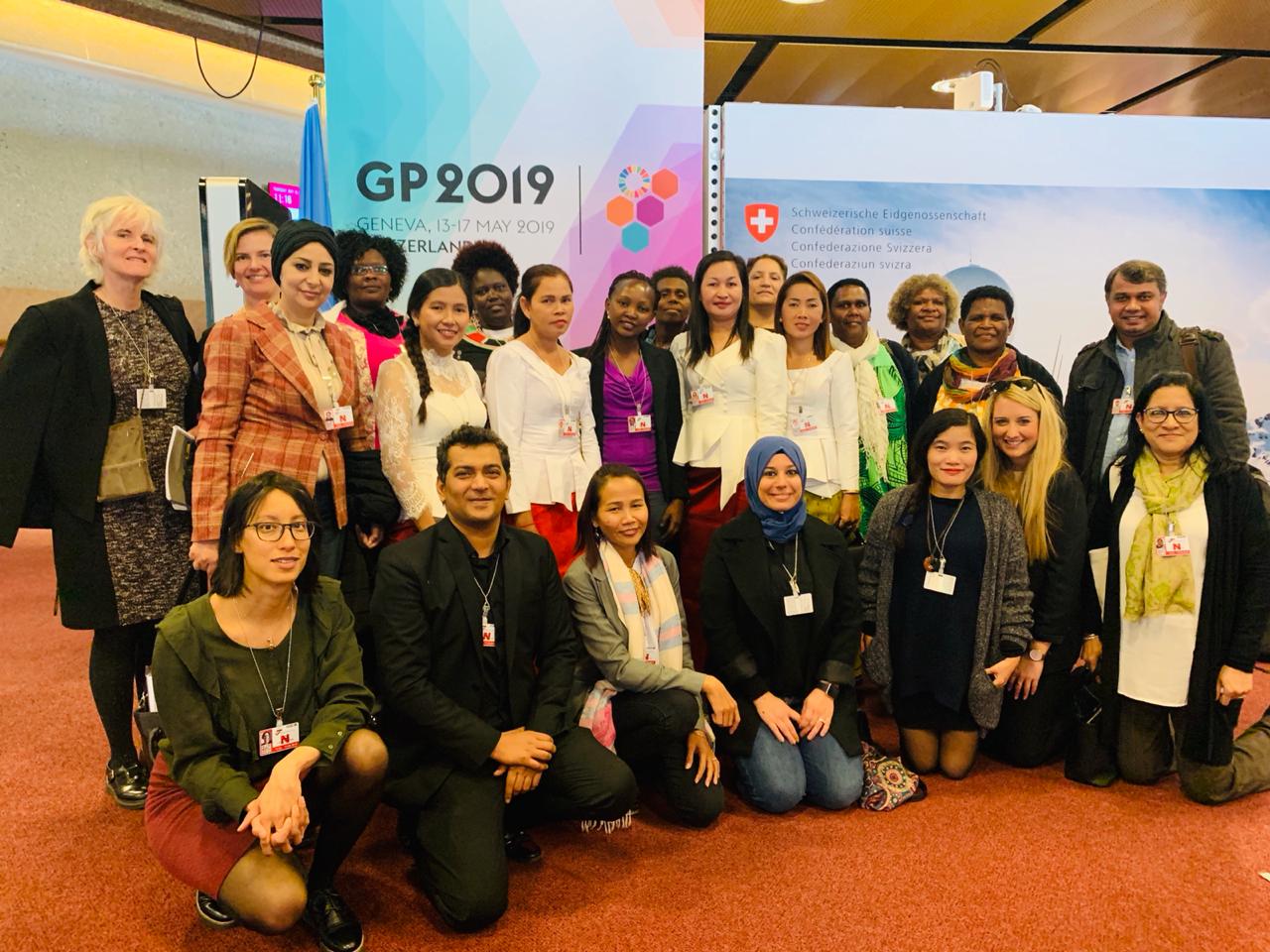Actor and Director Damon Gameau’s new climate film ‘2040’ hit cinemas days after the Australian Federal Election. The film has so far inspired audiences starving for a hopeful vision of what our future could look like if we were to take urgent action on climate change – and, indeed, reminds us of the transformation that is already in motion.
The film, presented as an open letter to his young daughter, asks the question: What could the world look like in 2040 if we simply resourced the climate technologies and solutions that already exist today?

Gameau focuses on a few key strategies for slowing down, or even reversing, climate change. Alongside things like marine regeneration, regenerative agriculture techniques, investing in renewable energy and reforming transportation, he also lists the empowerment of women and girls as one of the number one ways to combat climate change.
Gameau is right: The empowerment of women and girls is critical to addressing climate change. But the film’s narrow focus on exploring this solution purely through the lens of education and family planning leaves out several key points around the critical role of women and girls in leading the response to climate change.
Here are three things missing from 2040’s discussion of gender equality as a climate solution.
1. Women in low income countries are among those worst affected by climate change. We have a lot to learn from them.
“Women together raising their voices makes a powerful statement because women are the ones affected most.”
These are the words of South African climate justice activist Francina Nkosi, one of the many women ActionAid works with who are already on the front lines of both climate impacts and climate solutions. We know that women living in poverty are disproportionately impacted by climate change, which is made worse by pre-existing gender inequalities.
Most often responsible for securing water, food, and fuel for their families and communities, women are hit harder when things like increasing drought and unpredictable weather patterns threaten essential natural resources. An extended drought could mean women have to walk much longer distances to collect water to carry back for their families. The increased burden of unpaid labour means women have very little time left to engage in other income-generating activities, or obtain the same level of education as men in their communities. This in turn perpetuates a cycle of gender inequality.
These power relations mean that women are also disproportionately impacted by climate-related disasters, which are increasing in scale and frequency. Women and children are far more likely to die in a disaster than men.
Vanuatu is one of the most disaster prone nations on earth. The women we work with in Vanuatu are already experiencing climate-fueled disasters on a regular basis. And as a Pacific island nation, many are worried the climate impacts could get worse:
“I feel scared, because when the sea level is rising, there will not be enough space for people to grow their crops. We will have more disasters coming, like a tsunami… Climate change, it’s all our responsibility,” says Esther, a community member from Tanna, Vanuatu.
Gameau’s main argument in 2040 is that when women and girls are empowered to finish their schooling, they end up choosing to have fewer children, leading to a decline in population growth.
There is no doubt that all women and girls should be able to claim their right to an education. But we cannot forget that women and girls living on the frontlines of climate change already understand all too well the problem of climate change, and they have the solutions too. Solving the climate crisis is not just a matter of educating more women and girls, it’s also a matter of listening to what they already know.
2. We need to resource the deep knowledge that women bring to the table on how to address climate change, and follow their leadership.
Although not addressed in 2040, recognising and resourcing women’s leadership in this area is one key source of hope when thinking about climate change.
At ActionAid Australia, we have been working for a long time with women in Cambodia, Vanuatu, and Kenya to drive policies and advocate for just systems to reduce the impacts of climate change and ensure communities are prepared for climate related disasters.
Through this work, a women’s charter of demands has been developed in each of these countries to facilitate women’s engagement in influencing government policy-makers. A Grassroots Leadership Academy has been held for 30 community women leaders, and a global coalition formed to influence international policy forums such as COP24 and the UN General Assembly.
Recently, our Research and Policy Manager, Melissa Bungcaras, travelled to Geneva with eight women leaders from Cambodia, Kenya and Vanuatu so they could participate in the United Nations Global Platform on Disaster Risk Reduction (GPDRR).

Women community leaders from Cambodia, Kenya, and Vanuatu attend United Nations Global Platform on Disaster Risk Reduction.
This was a unique opportunity. Although women are already leading by example, their expertise is rarely acknowledged in high-level panels or at global conferences.
Melissa reflected:
“As the glacial pace of change in global discussions continues to sideline the voices of grassroots women, we are seeing women creating change from the bottom up and demonstrating that the solutions to climate change and disaster risks must come from the people who are most affected.”
In 2040, Gameau speaks about the need to empower women and girls if we are to tackle climate change. But let’s not forget that women facing the greatest impacts of climate change already have important knowledge to bring to the table, and they are clear about what needs to be done to address the climate crisis. Let’s support and resource their leadership now.
3. Gender equality is critical not just for stopping climate change, but also for responding to its unavoidable impacts.
From longer bushfire seasons to strengthening storms across the globe, we are already witnessing an increase in the scale and frequency of disasters as one of the primary impacts of climate change. Women play an essential role in responding to this new reality.
There is a large body of research which shows that reducing gender inequality even before disaster strikes can save more lives and minimise risks in an emergency. Greater gender equality in a society correlates with an increase in women’s leadership in all walks of life, including in humanitarian response. Experience shows that when women lead disaster response, they ensure everyone in their community is protected and that women’s needs are addressed. This in turn can help further transform gendered power relations in the long term.
At ActionAid, we work with women on the frontlines of disasters and support them to take the lead in humanitarian response. In Bangladesh, women participants in the Women-Led Emergency Response (WLER) initiative have reported that as a result of their involvement, men are now supportive of women’s leadership, well beyond the emergency.
As quoted in the research:
“Previously men did not let women leave the house to participate in training and workshops, but they now send women to attend by themselves. Women’s leadership is now highly visible in the community, even sought out by local media and government, and men are responding positively.”
—
These three points make one thing very clear: the empowerment of women and girls is key to addressing the climate crisis. But when it comes to gender, we need to look much deeper than education and family planning.
We need to be having a conversation about how to take the lead from those most affected, and make sure their solutions are resourced, if we are going to realise the hopeful vision for 2040 that Gameau paints in his film.